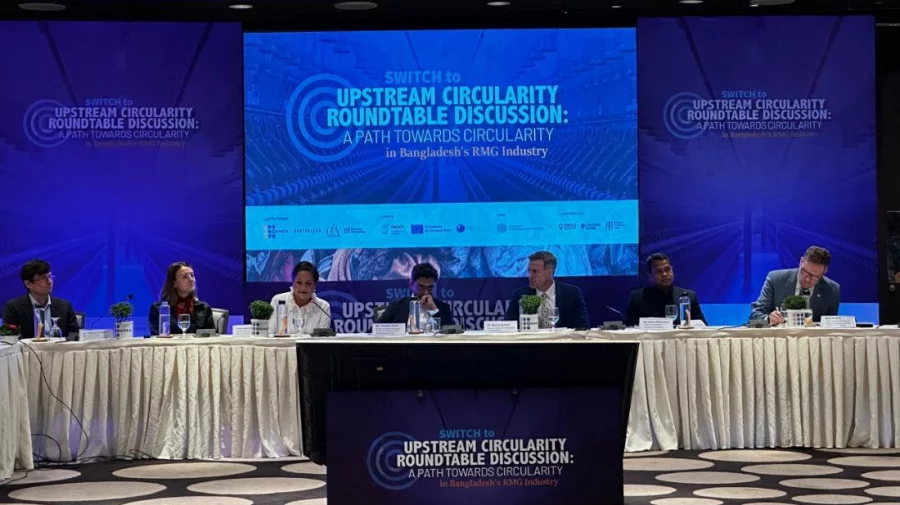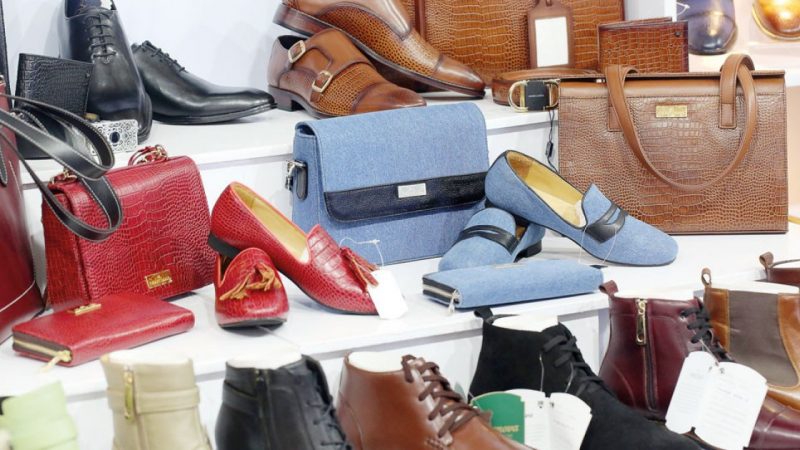EU new environmental laws will effect Bangladesh RMG industry, new policy needed

They also said that a formal policy for jhut would help to address the unrest currently affecting the RMG sector
Experts have stressed the need for formulating a national structure and policy for the textile waste (jhut) of Bangladesh’s readymade garment (RMG) sector as its informal market fuels political-economic tensions and labour unrest.
They also said that a formal policy for jhut would not only support the transition to a circular economy but also help address the unrest currently affecting the RMG sector. Proper coordination between three stakeholders – manufacturers, waste management companies, and brands, is a must.
Moreover, enabling a policy framework is essential to drive the transition, as it could create millions of jobs in the recycling industry and reduce Bangladesh’s reliance on imports.
They were speaking at a meeting held in the capital on Monday.
The event was organized by Switch to Circular Economy Value Chains project, which is co-funded by the European Union and the Finnish government.
Unido, in collaboration with the Bangladesh Garment Manufacturers and Exporters Association (BGMEA), Global Fashion Agenda (GFA), Bestseller, Reverse Resources (RR), Chatham House, Circle Economy, and the European Investment Bank were all part of the program.
Bernd Spanier, deputy head of the EU Delegation to Bangladesh, said that the industrial textile waste market in Bangladesh remains informal which has a significant political-economic impact on the sector, as seen during the recent labour unrest in the RMG sector in Ashula and other parts of Dhaka.
He also said that formalizing the sector is crucial, as a clear regulatory framework and enabling conditions would attract innovative recycling technologies and expertise.
“The transition toward circularity could create millions of jobs in the recycling industry and reduce Bangladesh’s reliance on imports. We believe the next five years will be crucial for Bangladesh’s garment industry. Under the EU Strategy for Sustainable and Circular Textiles, the EU is introducing significant initiatives in this region,” he said.
He also said that garment-producing countries must transition from a linear to a circular production model to ensure that, by 2030—which is not far away—textiles in the EU market are primarily made from recycled fibres, free of harmful substances, and produced in an environmentally and socially responsible manner.
Citing a recent study by GIZ, he said that Bangladesh’s lack of supportive policies has contributed to shifting preferences towards countries like Vietnam and Indonesia as destinations for recycling industries.
“We aim to retain the recycling industries in Bangladesh, but a post-industrial regulatory framework is essential, as current frameworks, such as the National Environmental Policy, Solid Waste Management Rules, and Bangladesh Labour Act, are not yet aligned with emerging EU and international standards for circularity in textile manufacturing and waste management,” he added.
Abdur Rahim Khan, additional secretary of the Ministry of Commerce said: “As you know, we have been facing unrest within our RMG sector, and some of my colleagues suggest that jhut is contributing to this instability,” he said.
He emphasized the need to establish a policy for jhut waste management, saying that it would support the transition to circularity and help address the unrest currently affecting the RMG sector.
He said that now it is time for Bangladesh to return to proper coordination between three stakeholders – manufacturers, waste management, companies, and brands.
If these stakeholders work together, the transformation will likely occur; otherwise, despite discussions and dialogues, real change may not happen, Rahim Khan mentioned.
Unido Chief Technical Advisor on Circular Economy in Global Value Chain Mark Draeck said that things were more complex in the textile industry, especially regarding circularity, which is why progress has not been straightforward.
He highlighted two concrete pilots they are working on. They are closely collaborating with brands and manufacturing companies to address challenges at the technology, logistics, economics, and traceability levels.
He said visiting partners like Fakir Group and Recycle Raw, along with other companies, where there was evident interest and readiness from the industry to move forward.
However, to scale these programs throughout the industry, systemic challenges must be addressed, including policy, capacity building, access to finance, and the necessary investments for this shift, Draeck mentioned.
BGMEA support committee member Rezwan Selim said that Bangladesh has already made progress in sustainability, with the highest number of LEED-certified green factories in the world.
“We aim to increase our sustainable material in line with the SDG. Circularity is our RMG industry’s goal and we will listen to any recommendations that will help us to move towards excellence,” he added.
On the event’s sideline, Moyeen Hyder Chowdhury, the branch manager (country manager) of Puma Bangladesh and Pakistan, said that as a brand, they are paying the fair or the right price for recycled garment makers in Bangladesh.
Desh Group Deputy Managing Director Vidiya Amrit Khan moderated the event.
Source: Dhaka Tribune | 12 November 2024 | Author: Saddam Hossain






